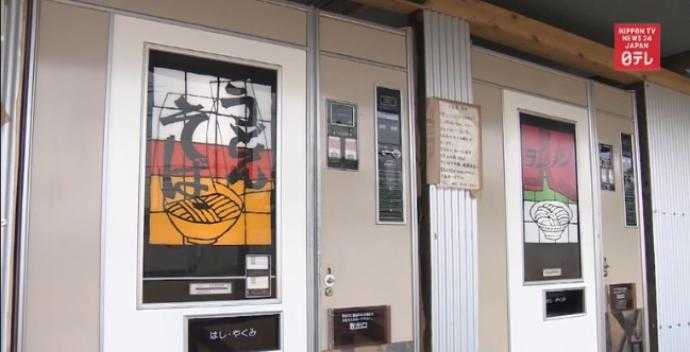TOKYO, Japan – Vending machines seem to be on every street corner in Japan. They sell everything from jeans to fruit in machines both classic and modern. On the side of this road in eastern Japan, a row of vending machines entices customers to drop in their 100 yen coins.
“Retro vending machines are lined up here. They’re selling toasted sandwiches and hamburgers,” says Nippon TV’s Daisuke Fujita.
These machines sell products popular in the 70’s and 80’s, including ramen and udon noodles made on the spot.
Pop in 300 yen and press a button, and out comes a bowl of noodle soup.
How does udon made by a vending machine taste?
“It’s chewy and soft, just like tempura udon should be,” Fujita said.
Classic candy, Senbei crackers and toasted sandwiches are also available. The pull of retro is powerful.
One man drove about 150 miles for the experience: “My allowance as a child was small, so I couldn’t buy what I wanted to eat.”
“It’s about enjoying the look and feel of the machines,” says a local office worker.
Next door is a tire shop that owns the machines. Originally, they were entertainment for customers waiting to have their tires changed.
“On Saturday and Sunday more than 50, 60 customers come to the store,” an employee says.
Now people come just to experience the retro machines.
A different type of retro vending machine is being made in this city in northern Japan. These classics were a mainstay in coffee shops in the 80’s.
Put a 100 yen coin into the slot for your zodiac sign, pull the lever and a tightly rolled fortune comes out.
The roulette wheel on top points to your destiny.
Sonoe Iwata assembles the machines herself, by hand: “I can make about 20 machines in a day.”
Once ubiquitous, orders for the machines dropped to nearly zero about 15 years ago.
Sales to individuals have been on the rise for four years, and the company now sells about 200 machines per month.
Retro vending machines are a hot ticket. But sales from cigarette, train ticket and other vending machines have fallen more than 30 percent in the last ten years.
Beverage makers are experimenting with new ideas to overturn this trend, including this machine aimed at women.
“We’ve added mirrors, straws and even coasters to our vending machines,” says Kanako Ogata, of Coca-Cola East Japan.
The company hopes women will check their looks in the mirror and then buy a drink. Straws solve the problem of lipstick rubbing off on drink containers.
“We’re targeting women by placing machines near women’s clinics and women’s colleges,” Ogata said.
From nostalgia to new trends, Japanese vending machines continue to evolve to suit the needs of their target customers.
Joshua Brown















